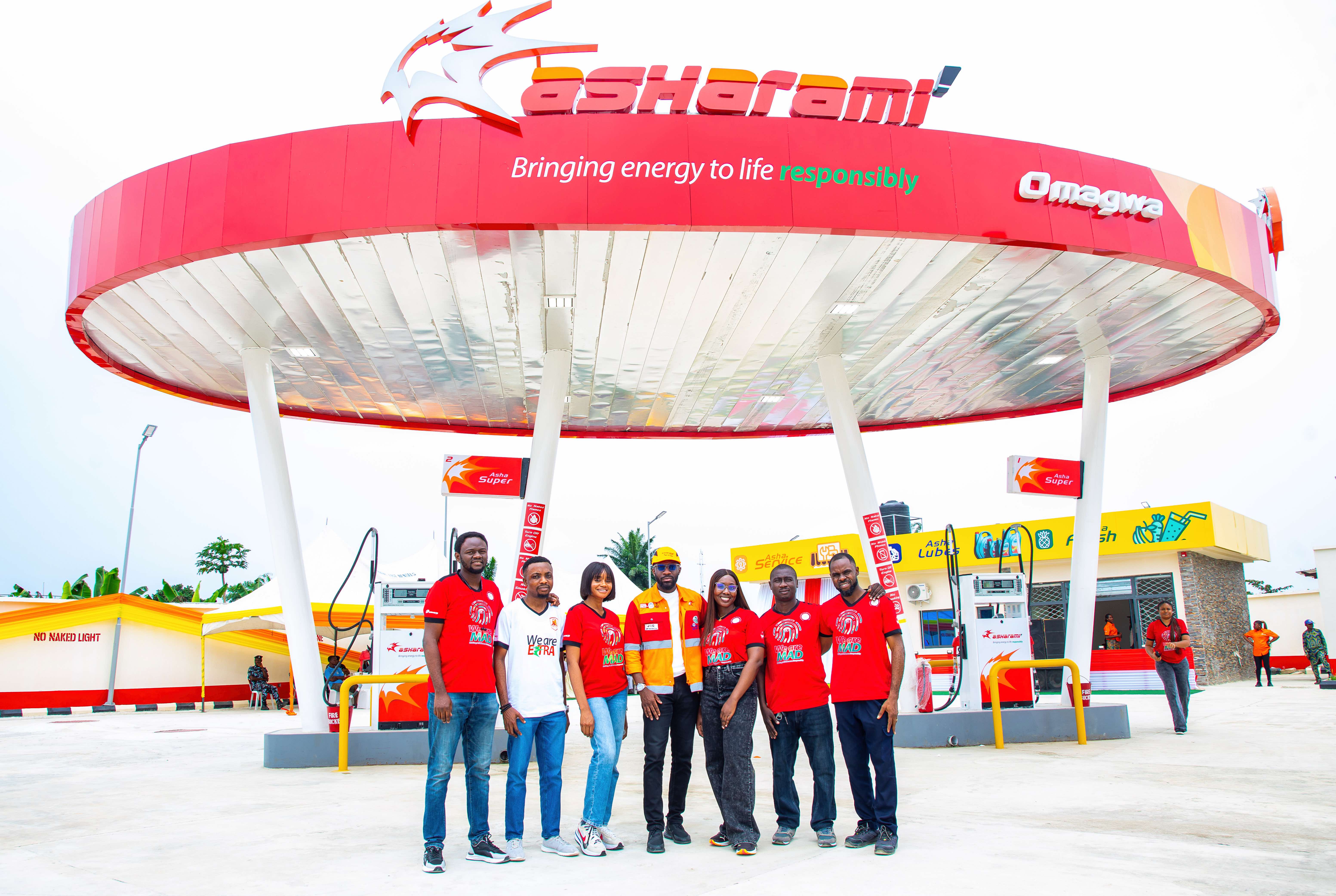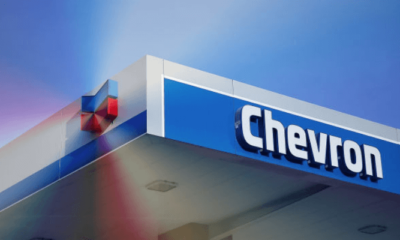Energy
World Environment Day 2022: Chevron Commits to a sustainable Future

Precious ADELOLA
LAGOS-EVERY year on June 5, the world commemorates World Environment Day (“WED”) to celebrate and promote environmental awareness and sustainability across the globe. Led by the United Nations Environment Programme (“UNEP”), and held annually since 1974, each edition focuses on raising awareness and mobilizing the world to take positive action to protect nature and our planet.
The theme for this year is “Only One Earth” with focus on “Living Sustainably in Harmony with Nature.” It beams a spotlight on climate action, nature action and pollution action while encouraging everyone, everywhere to live sustainably. Chevron Nigeria Limited (“CNL”), operator of the joint venture between the Nigerian National Petroleum Corporation (“NNPC”) and CNL (“NNPC/CNL JV”), identifies with this global action to save the planet as it aligns with our commitment to protecting the environment while providing affordable, reliable, and ever-cleaner energy.
CNL, not only conducts its business in a socially and environmentally sustainable manner, but also in compliance with applicable regulatory requirements, stakeholder expectation and best industry practices, and has made Environmental stewardship part of its social investment programmes.
Rick Kennedy, CNL Chairman and Managing Director, explains that CNL’s approach to sustainability is highlighted by its commitment to protecting the environment, empowering its people, and always getting results the right way. “Chevron is proud to be part of the solution to global environmental issues wherever we operate. Our environmental and energy transition efforts focus on lowering the carbon intensity of our operations, building lower carbon businesses, supporting well-designed climate policy, responsible water management, and biodiversity, while using our Operational Excellence Management System (“OEMS)” to manage risks.”
According to him, the company’s OEMS delivers industry-leading performance in process safety, personal safety and health, environment, reliability, and efficiency. “Our Environmental philosophy and processes lay the foundation for sound environmental management. The company protects the environment through the entire lifecycle from responsible design, development, operations, and asset retirement.” he stated.
CNL recognizes the importance of minimizing its environmental footprints and promoting ecosystem restoration. The company continually aims to achieve world class environmental excellence through implementation of its Environment Risk Assessment and Management (“ERAM”) procedure to identify, assess, mitigate, and manage environmental risks, environmentally related community health risks, and environmentally related social risks. CNL is committed to ecosystem sustainability, including ecosystem restoration interventions where required.
The restoration programmes provide positive environmental impacts and opportunities for raising the awareness of the community members to the impacts of degradation and benefits of restoration.
CNL is advancing its lower carbon strategy focusing on lowering the carbon intensity in its operations and taking proactive approaches to managing its methane detection and reduction capabilities. CNL utilizes high tech Optical Gas Imaging (“OGI”) cameras for detecting minute fugitive emissions. CNL has reduced routine gas flaring by over 95% in its operations in the past 10 years.
Chevron recognizes the importance of protecting and conserving a region’s biodiversity, and we have a long history of working in collaboration with communities, industry groups, regulators, and conservation groups to identify and protect biodiversity in parts of the world where we operate. CNL, in partnership with the Nigerian Conservation Foundation (“NCF”) established in 1992, the Lekki Conservation Centre (“LCC”). This 78-hectare facility, a center of excellence in environmental research and education, is reserved as a sanctuary for the rich flora and fauna of the Lekki Peninsula.
In 2005, CNL began supporting a yearly postgraduate research scholarship for PhD students in environment and conservation, instituted by the NCF. Additionally, the company hosts the annual S.L. Edu Memorial Lecture to promote environmental management awareness and partners with the Lagos State Government and NCF to sponsor an annual environmental awareness programme, tagged, Walk for Nature, an event held to create awareness and promote nature conservation and sustainable environmental management.
Esimaje Brikinn, CNL’s General Manager, Policy, Government and Public Affairs notes that for over 60 years, CNL has remained an active agent of sustainable development and strong advocate of partnerships in support of the environment. “We will continue to partner with stakeholders in raising public awareness to create the transformative environmental change we need to advance to a more sustainable future of our Only One Earth,” he said.
Energy
Asharami Synergy Unveils Fuelling Solutions In Omagwa

In line with its commitment to driving access to quality petroleum products, Asharami Synergy Limited, a leading Sahara Group downstream company, has said the public can now access exceptional fuelling solutions at its newly commissioned retail station in Omagwa, Rivers State.
Situated strategically along the Airport Road in Omagwa, the station, which features a storage capacity of 45,000 litres each for Automotive Gas Oil (AGO, also known as diesel) and Premium Motor Spirit (PMS, also known as petrol) is equipped with two pumps and four discharge nozzles for PMS and AGO.
The facility also has ample space for sundry services in a bid to ensure consumers get more “miles and smiles” as well as the energy to “go further” with Asharami’s world-class products.
“The Asharami Omagwa Retail Station is fully operational, offering a range of premium products and services. It’s a one-stop shop that also gives our esteemed customers eat-in and take-out restaurant services, shopping, as well as the Asha lubricants and Asha Service experience which will ensure premium care for all classes of automobiles and engines,” said Oladimeji Williams, Head, Government Relations and Business Development at Asharami Synergy.
ALSO READ: NNPCL Launches Utapate Crude Oil Blend, Eyes Production Expansion In 2025
At the Commissioning, Willaims said the new station represents an important step in Asharami Synergy’s expansion plan aimed at reaching and serving more communities responsibly. “This station is strategically positioned close to the airport, serving as the gateway for powering socio-economic development in the community and those close to it, while enabling Asharami Synergy integrate all aspects of its downstream business towards ensuring efficiency and value for our customers,” he stated.
Williams commended the Federal Airport Authority of Nigeria (FAAN) and the Omagwa community leaders for their support and collaboration throughout the project’s duration, describing it as a “seamless and productive process that highlights Asharami’s corporate stewardship and social impact” in the community.
Similarly, Ifesinachi Ezike, Regional General Manager (South South), FAAN, emphasized the broader significance of the new station, stating, “This occasion marks a significant milestone not just for Asharami Synergy but for the airport and the entire community. It marks not just an opening of a new facility but the beginning of a renewed commitment to enhancing the travel experience of all our passengers and stakeholders”.
In a move that underscores its commitment to sustainability and community development, Asharami Synergy also commissioned a solar-powered borehole during the launch. The borehole is set to improve access to clean and reliable water for residents, marking a tangible contribution to the local community.
“At Sahara, we are always making a difference—not just through our business operations; we are unwavering in our commitment to driving sustainable development and building partnerships that enhance the well-being of our host communities,” Williams added.
Energy
Awards Galore For Shell, Staff At NAPE 2024 Conference

The Shell companies in Nigeria and staff won awards in recognition of their robust participation at the 42nd Annual International Conference and Exhibition of the National Association of Petroleum Explorationists (NAPE), held in Lagos.
At the closing dinner of the event, the Managing Director of Shell Nigeria Exploration and Production Company (SNEPCo), Ronald Adams pledged sustained efforts by the company to address “the Nigerian energy trilemma by powering progress towards energy security in a sustainable manner”.
On the awards, the Shell was declared Best Overall Exhibitor and Best Exhibiting Energy company (International) just as Geophysicist Somime Oguntola took home the Award of Excellence for Oral Paper (second place).
The icing on the cake was a Shell staff, Johnbosco Uche, being installed as the new President of the NAPE.
It was gathered that the Shell companies in Nigeria have supported NAPE since its founding in 1975, using the skills and expertise of the large pool of energy professionals in its employment to improve its activities especially educational and mentoring programmes.
In addition to being a major sponsor of the 2024 conference, Shell mounted a high-profile exhibition, featuring among other things, career counselling, engagements on Nigerian Content and Contractor development and panel sessions on Women in Industry and Sustainability Energy Challenge.
A highlight was the Shell medical stand which attended to more than more than 500 conference participants and members of the public over the four days of the annual event. The doctors and nurses offered a wide range of services including laboratory tests, deworming, medical consultation as well as ophthalmology checks and distribution of nearly 300 eyeglasses.
Adams referred to the operations of SNEPCo as an example of Shell’s contribution to energy security in Nigeria. “As a result of sustained production from Bonga, we have provided funds to finance development, created a new generation of Nigerian Deepwater professionals, empowered indigenous contractors and service providers, and implemented social investments that have touched lives in the six geo-political zones of the country,” he said.
Adams added, “SNEPCo and indeed Shell are in Nigeria for the long haul. Our commitment is reflected in both our current and growth plans, all of which are grounded in principles of safety, affordability, and competitive performance.”
Energy
Accugas Denies Culpability In Akwa Ibom’s Power Outage

Owing to the persistent power outage, which has crippled economic and social life in most parts of Akwa Ibom State and environs, Accugas Limited has washed its hands off the ugly situation.
This was contained in a statement under the signature of its Communications Manager, Okwudili Onyia, in which the company traced the anomaly to a “fault in the 132-KV Aba-Itu transmission line”.
To ameliorate the situation, the company maintained that “It is imperative that the restoration of the Aba-Itu line is completed as soon as possible.”
In addition, the company pledged thus, “Accugas will continue to partner with, and support, the government of Akwa Ibom State towards achieving the government’s agenda for economic development and prosperity of the state.”
ALSO READ: NNPC Ltd To Supply 100mmscf/d Gas To Dangote Refinery
The statement reads, “Accugas Limited, a subsidiary of Savannah Energy, wishes to strongly deny the misinformation concerning its alleged involvement in the current power outage in Akwa Ibom State.
“The power cut in Akwa Ibom State is entirely due to the reported fault in the 132-KV Aba-Itu transmission line, which, unfortunately, is preventing power being transmitted from the National Grid into the State. It is imperative that the restoration of the Aba-Itu line is completed as soon as possible.
“Ibom Power Company (“IPC”) is one of 23 thermal power generation companies which channel power to the National Grid, which in turn disseminates all accumulated power to each State of the Federation through the electricity distribution companies (“Discos”). Indeed, Accugas supplies gas to enable c. 20% of Nigeria’s thermal generation capacity and, as such, is a critical enabler of the Nigerian economy.
“Within Akwa Ibom State, Accugas has been the sole supplier of gas to IPC since 2014 and, together with other Savannah subsidiaries, has invested over US$1.5 billion in gas development within the state. Furthermore, Savannah has recently invested c. US$45 million in a gas compression project at Accugas’ Uquo central processing facility at Esit Eket. Accugas’ commitments also extend to several social investment projects in the state. All the foregoing investments and projects, including other imminent investments Accugas intends to make in the State, demonstrate the Company’s long-term commitment to Akwa Ibom State and Nigeria.
“Accugas will continue to partner with, and support, the government of Akwa Ibom State towards achieving the government’s agenda for economic development and prosperity of the state.”















